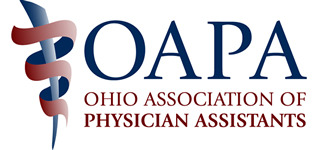PA Basics
Who is a PA?
A Physician Assistant (PA) is a member of the healthcare team who is trained, nationally certified, and state licensed to practice medicine in collaboration with a supervising physician in a variety of health care settings.
PAs can see patients in a way similar to a physician. They can perform comprehensive physical exams, order and interpret diagnostic tests, diagnose and initiate treatment. Additionally, they are trained to first assist in surgery, perform bedside procedures, and much more.
In Ohio, PAs are licensed and regulated by the State Medical Board of Ohio, the same as physicians.
Who can become a PA?
Anyone with a commitment to lifelong learning and a passion to serve their community can pursue a career as a PA.
Admission to PA school is rigorous and generally requires a bachelor's degree, with multiple pre-requisite courses in the areas of general sciences and anatomy. Additionally, many programs require their applicants to have a set number of PA shadowing hours and clinical patient care hours.
However, just as it is for admission to medical school, it is not required that an individual hold a major in a science or have a background in medicine to become a PA, and diversity in the profession is encouraged.
What's involved in the training process?
Ohio PA schools are generally 24-27 months in duration, provide a Masters level of education, and are typically divided into didactic and clinical curricula.
Didactic year is rigorous and mirrors the first two years of a typical medical school curriculum with emphasis in the areas of clinical medicine, pathophysiology, anatomy, and pharmacology.
Clinical year typically entails 4-6 week clinical rotations in the core areas of family medicine, internal medicine, emergency medicine, general surgery, mental and behavioral health, women’s health, and pediatrics.
Upon graduation from an accredited PA program, students must sit for the Physician Assistant National Certifying Examination (PANCE) which is the national certification process administered by the National Commission on Certification of Physician Assistants (NCCPA). Upon becoming nationally certified, PA-Cs are generally permitted to obtain state licensure and prescribing abilities. PAs are required to engage in Continuing Medical Education (CME). Nationally, PAs are required to obtain 100 CME every 24 months. The state of Ohio specifically requires an additional 12 hours of CME dedicated specifically to pharmacology.
What's the difference between a PA and a nurse practitioner (NP)?
Like PAs, Nurse Practitioners (NPs) are Advanced Practice Providers (APP). PAs and NPs alike work together with doctors, nurses, medical assistants, and other members of the healthcare team to provide evidence-based medical care.
PAs and NPs have different training, licensure, and certification processes. PA didactic and clinical curriculum is modeled after the medical model, and closely resembles that of MD/DO programs; whereas NPs are trained under a nursing model, first attending nursing school and then obtaining their Masters. NPs are trained under specific “tracks” (Family, Pediatric, Critical Care, etc), whereas PAs are trained and recertify as generalists, with the options to change specialties throughout their career.

